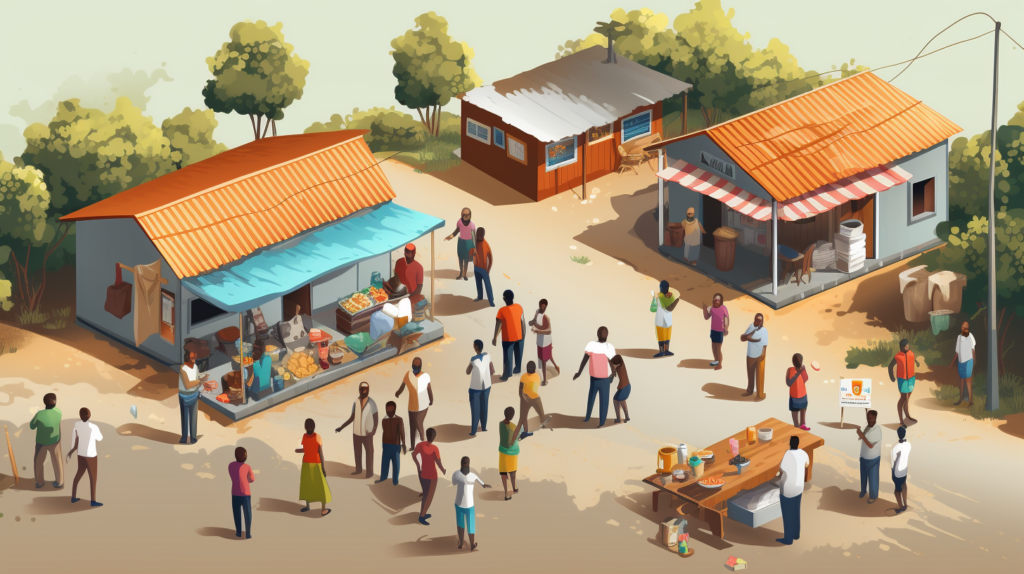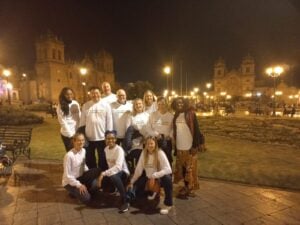Hey there, fellow traveler! Are you itching to explore new lands, immerse yourself in different cultures, and make a positive impact while volunteering abroad? Well, you’re in for a treat because in this article, we’re going to delve into the world of finding your tribe and connecting with like-minded volunteers and locals abroad.
Embarking on a volunteer journey abroad is not just about the work you do; it’s also about the connections you make along the way. These connections are what truly enrich your experience and leave a lasting impact on both you and the communities you serve. So, let’s dive in and discover the importance of building a solid network while volunteering overseas.
But first, why is it even important to connect with others during your volunteer experience?
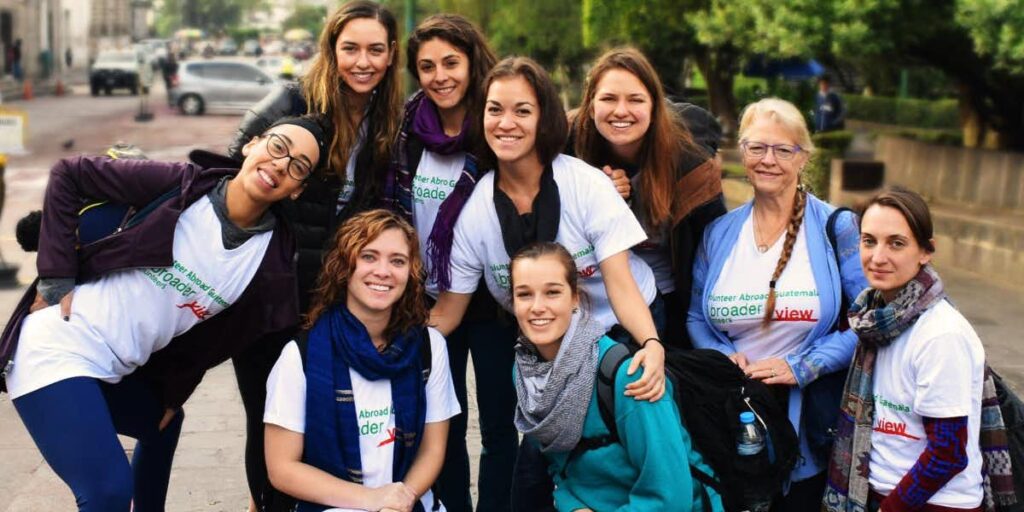
It’s simple – human beings thrive on community and connection. We are social creatures, and forming meaningful relationships and being part of a supportive network is essential to our well-being. When volunteering abroad, connecting with your tribe provides you with:
1. Sense of Belonging
Belonging to a community gives you a sense of purpose and identity, especially when you’re working in a foreign environment. It allows you to feel like you’re a part of something bigger and meaningful. Striving towards a common goal alongside like-minded volunteers can be incredibly motivating and fulfilling.
2. Support and Collaboration
Working together with others who share your passion and values creates a support system that helps you navigate the challenges and triumphs of your volunteering experience. It’s an opportunity to learn from and lean on your fellow volunteers, as you tackle projects and initiatives side by side.
3. Cultural Exchange
Connecting with locals and fellow volunteers allows you to gain a deeper understanding of the local culture, traditions, and customs. It opens doors to meaningful conversations and exchanges that go beyond language barriers, fostering mutual respect and understanding.
Now that we understand the importance of community while volunteering abroad, let’s explore how to navigate the process of finding your tribe. Get ready for an exciting journey filled with incredible connections and life-changing experiences!
Understanding the Importance of Community
When embarking on a volunteer trip abroad, it’s not just about the project you’ll be working on or the destination you’ll be visiting. It’s also about the community you’ll be joining. Community is a vital aspect of volunteer work, as it provides a sense of belonging, support, and collaboration. Additionally, engaging with the local community allows for cultural exchange and a deeper understanding of the people you are serving. Let’s explore the importance of community in more detail:
Sense of Belonging
Being part of a community while volunteering abroad gives you a sense of belonging and purpose. It helps you connect with like-minded individuals who share your passion for making a difference. When you feel connected to others, you’re more likely to be motivated and have a positive impact on the project you’re working on.
Support and Collaboration
Communities provide a network of support and collaboration. When faced with challenges or obstacles, having a community to lean on can make all the difference. It allows you to share ideas, seek advice, and learn from others who have similar experiences. Working together with locals and fellow volunteers can lead to innovative solutions and more effective ways of making a difference.
Cultural Exchange
One of the most rewarding aspects of volunteering abroad is the opportunity to immerse yourself in a different culture. By engaging with the local community, you have the chance to learn about their customs, traditions, and way of life. This cultural exchange enriches your understanding of the world and promotes empathy and respect for different perspectives.
To fully harness the power of community while volunteering abroad, it’s important to do thorough research on the volunteer opportunities available to you. In the next section, we’ll explore how to go about researching these opportunities.
Researching Volunteer Opportunities
Volunteering abroad is an amazing opportunity to make a positive impact while experiencing different cultures and exploring new places. However, finding the right volunteer opportunity can be overwhelming with the plethora of options available. To ensure that you have a rewarding experience, it’s important to do thorough research before making any commitments. Here are some tips for researching volunteer opportunities:
Identifying Your Passion and Skills
Before diving into the search for volunteer opportunities, take some time to reflect on your passions and skills. What causes or issues are close to your heart? What skills do you possess that could be beneficial in a volunteer role? By identifying your passions and skills, you can narrow down the type of volunteer work that aligns with your interests and strengths.
Choosing the Right Organization
Once you have a clear idea of what kind of volunteer work you want to do, start researching organizations that focus on those areas. Look for organizations that have a strong track record, positive reviews, and a mission statement that resonates with you. Additionally, consider factors such as the organization’s reputation, transparency, and impact in the community they serve. It’s also helpful to reach out to past volunteers or read testimonials to get a better sense of the organization’s work culture and the support they provide to their volunteers.
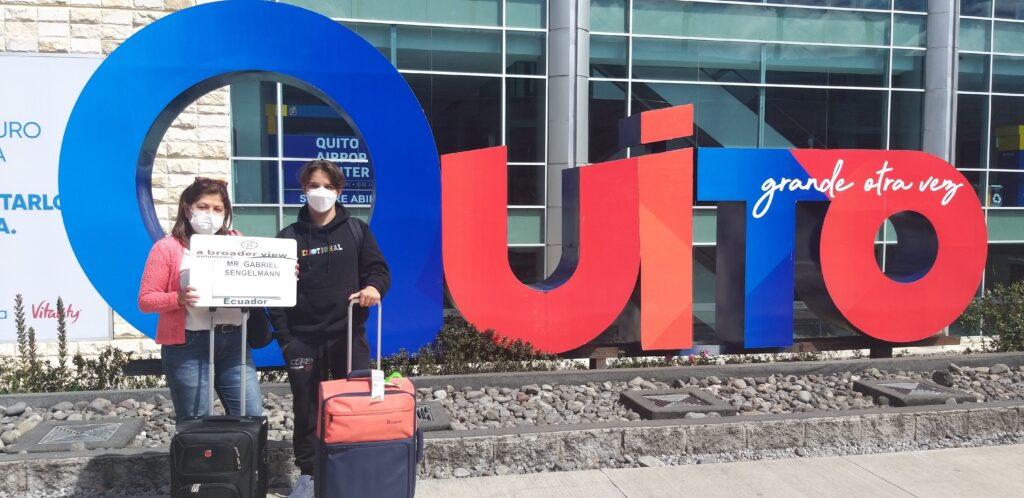
Location Considerations
When researching volunteer opportunities, don’t forget to consider the location. Do you have a specific country or region in mind that you’ve always wanted to visit? Or are you open to exploring different parts of the world? Consider factors such as the local culture, language barriers, safety, and accessibility when choosing a location. Keep in mind that each location offers unique experiences and challenges, so it’s essential to choose a place that aligns with your preferences and comfort level.
Researching volunteer opportunities is an essential step towards finding the right fit for you. By identifying your passions and skills, choosing the right organization, and considering location factors, you can ensure that your volunteering experience is fulfilling and impactful. Keep in mind that volunteering abroad is not just about the destination, but also about the meaningful connections you make and the positive impact you create. So, take your time, do your research, and get ready for an incredible journey of making a difference in the world!
Engaging with Local Communities
One of the most rewarding aspects of volunteering abroad is the opportunity to engage with local communities. By actively participating in the local culture and forming connections with the people you encounter, you can truly immerse yourself in the experience and make a lasting impact. Here are some tips on how to effectively engage with local communities while volunteering:
Learning the Language and Culture
- Learn some basic phrases: Taking the time to learn a few key phrases in the local language can go a long way in building rapport and showing respect.
- Use non-verbal communication: When language barriers exist, non-verbal communication such as gestures, facial expressions, and body language can help bridge the gap.
- Immerse yourself in the culture: Embrace the local customs, traditions, and way of life. Be open-minded and willing to learn from the locals.
Respecting Local Customs and Traditions
- Do your research: Before arriving at your volunteer destination, familiarize yourself with the local customs and traditions. This will help you avoid inadvertently offending anyone.
- Observe and follow local etiquette: Pay attention to how locals behave in different situations and follow suit. This includes dress codes, greetings, and appropriate behavior in public spaces.
- Be sensitive to cultural differences: Recognize that different cultures may have different values and perspectives. Show respect for these differences and be open to new ways of thinking.
Building Trust and Relationships
- Be patient and approachable: Building trust takes time, so be patient and approachable. Take the time to get to know the locals and show a genuine interest in their lives.
- Be respectful and humble: Show respect for the local community and their way of life. Be humble and avoid coming across as superior or condescending.
- Contribute to the community: Look for ways to actively contribute to the community, whether it’s through volunteering at local events, helping with community projects, or supporting local businesses.
Building connections with the local community will not only enhance your volunteering experience but also create a positive impact on the community itself. As the saying goes, “We rise by lifting others.”
“When you show deep empathy toward others, their defensive energy goes down, and positive energy replaces it. That’s when you can get more creative in solving problems.” -Stephen Covey
Connecting with Like-Minded Volunteers
Volunteering abroad not only allows you to make a positive impact on the community you serve, but it also provides an incredible opportunity to connect with like-minded individuals from all over the world. Building relationships with fellow volunteers can enhance your experience, foster personal growth, and create lifelong friendships. In this section, we will explore some strategies for connecting with like-minded volunteers while abroad.
Joining Volunteer Groups and Organizations
One of the easiest ways to meet like-minded volunteers is by joining volunteer groups and organizations. These groups often attract individuals who share similar interests and values, making it easier to find common ground. Whether you are working on a conservation project, teaching English, or building houses, there are bound to be groups or organizations dedicated to the same cause. By participating in group activities and projects, you can collaborate with fellow volunteers and build meaningful relationships.
Attending Workshops and Training Programs
Many volunteer programs offer workshops and training programs to enhance the skills and knowledge of their volunteers. These sessions are not only informative but also provide an excellent opportunity to connect with other volunteers who are passionate about the same cause. By attending these workshops, you can engage in discussions, share experiences, and learn from one another. These interactions can lead to lasting friendships and even potential future collaborations.
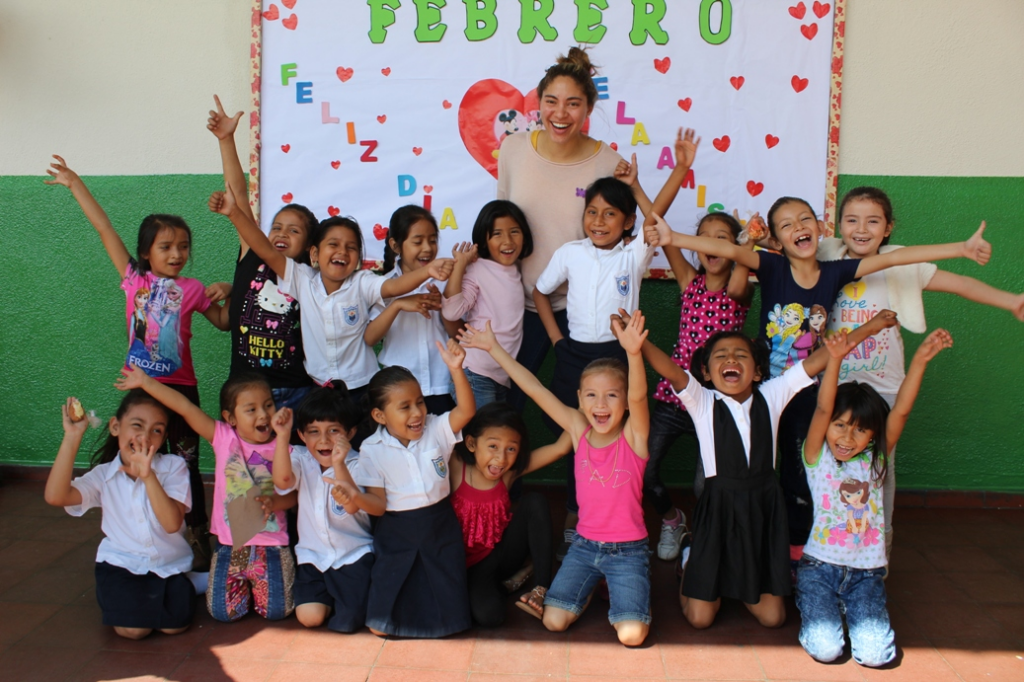
Collaborating on Community Projects
Working on community projects alongside other volunteers is a great way to connect with like-minded individuals. Whether you are building a school, organizing a health initiative, or implementing a sustainable development project, collaborating with others fosters a sense of camaraderie and collective purpose. Through teamwork, you can bond with fellow volunteers, learn from their experiences, and create lasting memories together.
Connecting with like-minded volunteers not only enriches your volunteering experience, but it also expands your global network and exposes you to different perspectives and cultures. These connections can be truly transformative and have a lasting impact on your personal and professional development.
“Volunteering provides a unique opportunity to meet people from diverse backgrounds who share the same passion for making a difference in the world.” – Anonymous
In the next section, we will explore the benefits of networking abroad and how it can broaden your global perspective.
Benefits of Networking Abroad
One of the most rewarding aspects of volunteering abroad is the opportunity to connect with like-minded individuals from around the world. Networking with other volunteers not only enhances your experience, but also opens up a world of benefits that extend beyond your time abroad. Here are some of the key benefits of networking abroad:
1. Expanding Your Global Perspective
Networking with volunteers from different countries and backgrounds allows you to gain a broader perspective on global issues and cultural diversity. You’ll have the chance to learn about different belief systems, traditions, and ways of life. This exposure to diverse perspectives can greatly enrich your understanding of the world and help you develop a global mindset.
2. Learning from Other Cultures
By networking with volunteers from different countries, you’ll have the opportunity to learn about their unique cultures firsthand. You can exchange ideas, share experiences, and gain insights into different ways of solving problems. This cultural exchange can challenge your own assumptions and help you develop a deeper appreciation for diversity.
3. Long-lasting Friendships
Networking abroad often leads to lasting friendships that span continents. When you volunteer together, you create bonds built on shared experiences, common interests, and a shared sense of purpose. These friendships can be incredibly valuable, providing support, inspiration, and even future travel opportunities. It’s amazing how connections made during volunteer work can last a lifetime.
4. Professional Development
Networking abroad can also have a positive impact on your professional development. Through your connections, you may discover new career opportunities, gain insights into different industries, or even find mentors who can guide you in your chosen field. The diverse backgrounds and expertise of your fellow volunteers can help you expand your knowledge and skills, and create valuable connections for your future career.
5. Building a Supportive Community
Volunteering abroad can sometimes be challenging, both emotionally and physically. Having a network of like-minded individuals who understand your experiences and can offer support can make a world of difference. Networking with other volunteers allows you to build a supportive community that can help you navigate the ups and downs of volunteering abroad.
As you can see, networking while volunteering abroad offers a wide range of benefits. It not only enhances your personal growth and understanding of the world, but also provides you with a supportive community and potentially opens up new opportunities for your future. So, take advantage of the connections you make during your volunteering journey and embrace the wonderful world of networking abroad!
Overcoming Challenges and Embracing Differences
Dealing with Language Barriers
Volunteering abroad is an incredible experience that allows you to immerse yourself in a different culture and make a positive impact. However, it’s important to acknowledge that this journey comes with its fair share of challenges. From language barriers to cultural differences, navigating through unfamiliar territory can be both intimidating and overwhelming. But fear not! By approaching these challenges with an open mind and a willingness to learn, you can overcome them and truly embrace the differences you encounter.
Language is often one of the first obstacles you’ll face when volunteering abroad. Communicating effectively with the locals and your fellow volunteers is crucial for building relationships and carrying out your work. Here are a few tips to help you navigate language barriers:
- Learn the basics: Prioritize learning a few key phrases in the local language. Simple greetings, thank you, and please can go a long way in establishing rapport and showing respect for the culture.
- Use non-verbal communication: Don’t underestimate the power of gestures and body language. While words may fail you, a smile, a handshake, or a friendly nod can convey warmth and understanding.
- Utilize translation tools: In this digital age, we have access to various translation apps and devices. These tools can be a lifesaver when you need to communicate something important or seek clarification.
Cultural Sensitivity and Adaptability
Cultural differences are bound to exist when you’re volunteering abroad. Embracing these differences and demonstrating cultural sensitivity is key to building strong relationships and avoiding misunderstandings. Here’s how you can navigate cultural differences:
- Educate yourself: Take the time to learn about the local customs, traditions, and social norms before arrival. This knowledge will help you avoid accidental faux pas and show respect for the local culture.
- Observe and adapt: Be open-minded and observant. Take note of how the locals behave and adapt your actions accordingly. For example, if locals dress modestly, it’s important to do the same out of respect.
- Ask questions: Don’t be afraid to ask questions and seek clarification when you’re unsure. Locals will appreciate your curiosity and willingness to learn about their culture.
Resolving Conflicts
When people from different backgrounds come together, conflicts can arise. It’s important to approach these conflicts with patience, empathy, and a desire for resolution. Here’s how you can navigate conflicts while volunteering abroad:
- Practice active listening: Give the other person your full attention and listen to their perspective without interrupting. This shows respect and helps build mutual understanding.
- Seek common ground: Look for areas of agreement or shared goals to focus on. This can help shift the conversation from conflict to collaboration.
- Involve a mediator: If the conflict persists, consider involving a neutral third party to mediate the conversation. This can provide a fresh perspective and facilitate a resolution.
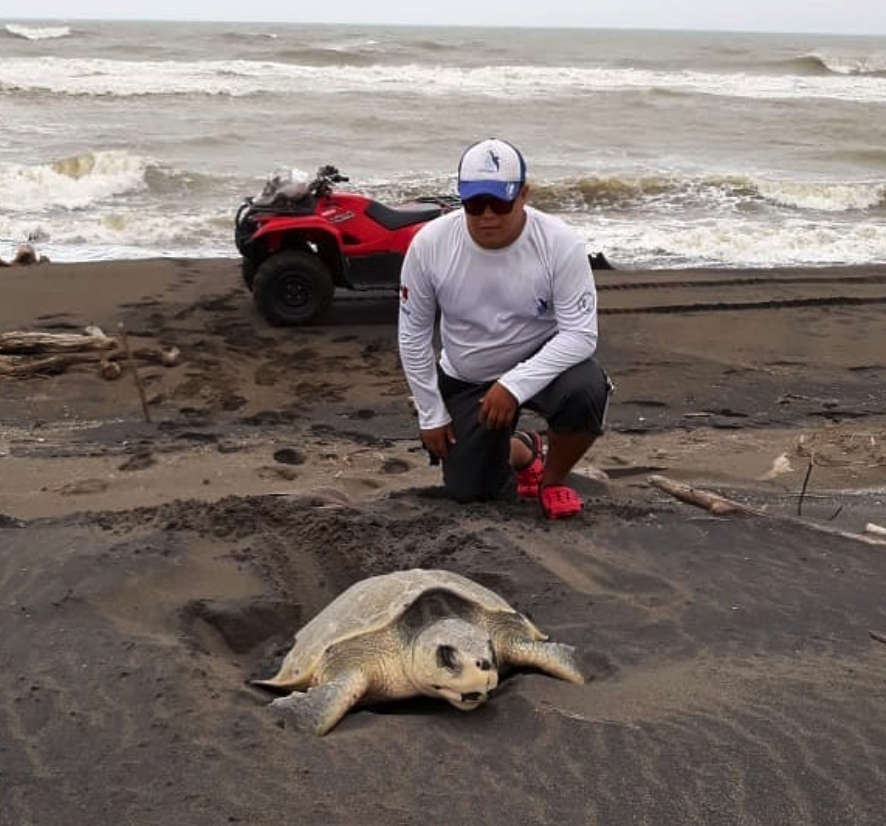
Volunteering abroad offers a unique opportunity to step out of your comfort zone and learn from others. Embracing the challenges and differences you encounter can lead to personal growth, increased cultural understanding, and the development of lifelong friendships. As the late Nelson Mandela said, “The first step toward change is awareness. The second step is acceptance.” So go forth, embrace the differences, and make a positive impact on the world!
Staying Connected After Returning Home
After returning home from your volunteer experience abroad, it’s natural to want to stay connected with the people you met and the communities you were a part of. Maintaining those connections can not only keep the memories alive but also provide ongoing support, inspiration, and opportunities for future collaborations. Here are some tips on how to stay connected after returning home:
Maintaining Virtual Connections
- Social Media: Connect with fellow volunteers, locals, and organizations on social media platforms like Facebook, Instagram, or LinkedIn. This allows you to stay updated on their activities and keep in touch.
- Email and Messaging Apps: Keep the communication going by exchanging emails or using messaging apps like WhatsApp or Telegram. This way, you can continue sharing stories, photos, and updates with each other.
- Video Calls: Schedule regular video calls with your friends from abroad. Seeing each other’s faces and hearing their voices can make you feel connected even when you’re miles apart.
Participating in Reunions and Gatherings
- Organize Reunions: Plan reunions with fellow volunteers in your area. It could be as simple as meeting for a coffee or organizing a potluck where you can share your experiences and catch up on each other’s lives.
- Attend Events: Keep an eye out for events or gatherings organized by the organization you volunteered with. These events often bring together past and present volunteers, providing an opportunity to reconnect with familiar faces and make new connections.
- Celebrate Cultural Festivals: If there are cultural festivals celebrated by the community you volunteered with, try to participate in these events in your own country. It can help you stay connected to the culture you experienced abroad while also providing a chance to meet other volunteers who had similar experiences.
Supporting Future Volunteers
- Mentoring: Offer your support and guidance to future volunteers who are planning to embark on a similar journey. Share your insights, advice, and tips to help them make the most out of their experience.
- Fundraising and Donations: If you had a positive experience volunteering abroad, consider supporting the organization or community through fundraising campaigns or donations. This can help create long-lasting impact and ensure that future volunteers have the same opportunities as you did.
- Spread the Word: Be an advocate for the organization or cause you volunteered with. Share your experience on social media, write blog posts, or give presentations to inspire others to get involved and make a difference.
By staying connected with the people and communities you encountered abroad, you can continue to be part of the positive change you initiated during your volunteer experience. Your ongoing support and connection can help strengthen the bonds you formed and create a network of like-minded individuals who share a common passion for making the world a better place.
Conclusion
Volunteering abroad is not just about giving your time and skills, but also about connecting with like-minded individuals and building meaningful relationships with local communities. By finding your tribe, you can enhance your overall experience and make a lasting impact on the lives of those you encounter.
Throughout this article, we have explored the importance of community, researched volunteer opportunities, engaged with local communities, and connected with like-minded volunteers. We have also discussed the benefits of networking abroad, overcoming challenges, and staying connected after returning home.
Remember, finding your tribe is a journey that requires effort and an open mind. It may take time to establish meaningful connections, but the rewards are well worth it. By immersing yourself in the local culture, respecting customs and traditions, and embracing differences, you can create lasting friendships and gain a deeper understanding of the world around you.
Stay connected by maintaining virtual connections, participating in reunions and gatherings, and supporting future volunteers. Share your experiences, insights, and stories so that others can benefit from your journey.
In conclusion, volunteering abroad is not just a chance to give back, but an opportunity for personal growth and enriched global connections. So go out there, find your tribe, and make a difference in the world while experiencing the power of community firsthand. Happy volunteering!
Frequently Asked Questions
- How can I find like-minded volunteers abroad?To find like-minded volunteers abroad, you can join volunteer organizations, online communities, and social media groups that focus on volunteering or specific causes. Additionally, attending volunteer events or workshops, and reaching out to local organizations in the destination country can help you connect with like-minded individuals.
- Are there any online platforms for connecting with locals abroad?Yes, there are various online platforms available that can help you connect with locals abroad. Some popular platforms include Couchsurfing, Meetup, and InterNations. These platforms allow you to join local events, meet people with similar interests, and connect with locals who can provide guidance and support.
- What are some tips for building connections with locals while volunteering abroad?To build connections with locals while volunteering abroad, try learning the local language or at least a few basic phrases. This shows your effort and respect for the local culture. Additionally, participate in community activities and events, be open-minded, and show genuine interest in the local customs and traditions.

- How can I make the most of my interactions with like-minded volunteers and locals abroad?To make the most of your interactions abroad, actively engage in conversations, ask questions, and listen attentively. Share your experiences and knowledge, while also being open to learning from others. Networking with like-minded individuals and locals can lead to valuable friendships, cultural exchange, and collaborative projects.
- What are the benefits of connecting with like-minded volunteers and locals abroad?Connecting with like-minded volunteers and locals abroad can provide a sense of belonging and support in a foreign environment. It offers opportunities to learn from diverse perspectives, gain insight into the local culture, and potentially collaborate on meaningful projects. Building these connections can enhance your overall experience and create lasting memories.

